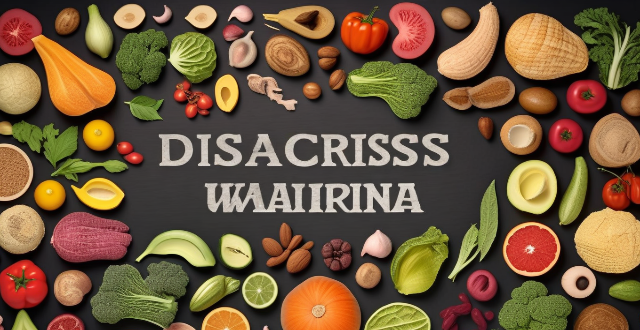This article discusses the impacts of global warming on agricultural production and food supply, including changes in climate patterns, reduced crop yields, loss of biodiversity, decreased nutrient content, heat stress in livestock, changes in feed availability, increased risk of disease, reduced food availability, increased food prices, and food safety concerns.

Impacts of Global Warming on Agricultural Production and Food Supply
Introduction
Global warming is a phenomenon characterized by the increase in Earth's average surface temperature due to greenhouse gas emissions. This has significant impacts on various sectors, including agriculture and food supply. In this article, we will discuss the effects of global warming on agricultural production and food supply.
Changes in Climate Patterns
One of the most significant impacts of global warming on agriculture is the change in climate patterns. The following are some of the ways in which climate change affects agricultural production:
- Increased temperatures: Higher temperatures can lead to reduced crop yields, especially for crops that require cooler temperatures to grow.
- Extreme weather events: Climate change increases the frequency and intensity of extreme weather events such as droughts, floods, and storms, which can damage crops and disrupt food supply chains.
- Changes in precipitation patterns: Changes in rainfall patterns can affect soil moisture levels, making it difficult for crops to grow.
Impacts on Crop Yields
Global warming has a direct impact on crop yields, affecting both the quantity and quality of produce. Some of the effects include:
- Reduced crop yields: Higher temperatures can cause crops to mature faster, reducing the time available for photosynthesis and ultimately leading to lower yields.
- Loss of biodiversity: Climate change can cause the extinction of certain plant species, reducing the genetic diversity of crops and making them more vulnerable to pests and diseases.
- Decreased nutrient content: Higher temperatures can reduce the nutrient content of crops, affecting their nutritional value.
Impacts on Livestock Production
Livestock production is also affected by global warming, with consequences for meat, dairy, and egg production. Some of the impacts include:
- Heat stress: High temperatures can cause heat stress in livestock, leading to reduced growth rates and decreased reproductive performance.
- Changes in feed availability: Changes in rainfall patterns can affect the availability of feed for livestock, leading to increased feed costs and reduced profitability.
- Increased risk of disease: Climate change can increase the prevalence of certain diseases in livestock, affecting animal health and productivity.
Impacts on Food Security
The impacts of global warming on agricultural production and food supply have significant implications for food security. Some of the effects include:
- Reduced food availability: Decreased crop yields and livestock production can lead to reduced food availability, particularly in regions where food production is already limited.
- Increased food prices: Reduced crop yields and increased production costs can lead to higher food prices, making it more difficult for low-income households to access adequate nutrition.
- Food safety concerns: Extreme weather events and changes in precipitation patterns can increase the risk of contamination of food products, posing a threat to public health.
Conclusion
In conclusion, global warming has significant impacts on agricultural production and food supply, affecting crop yields, livestock production, and food security. It is essential to take action to mitigate the effects of climate change on agriculture and ensure that everyone has access to safe and nutritious food.